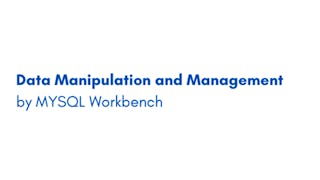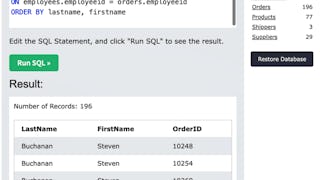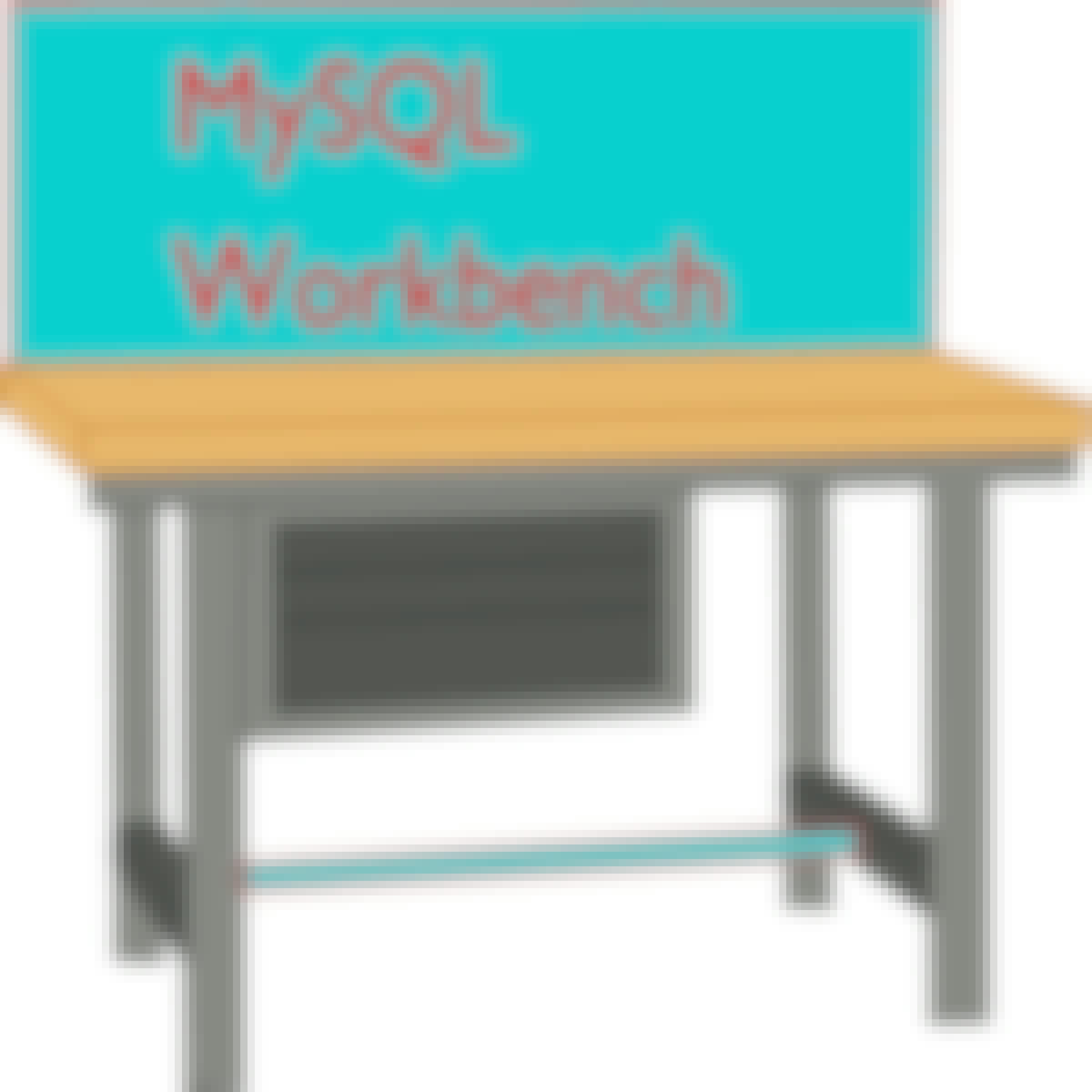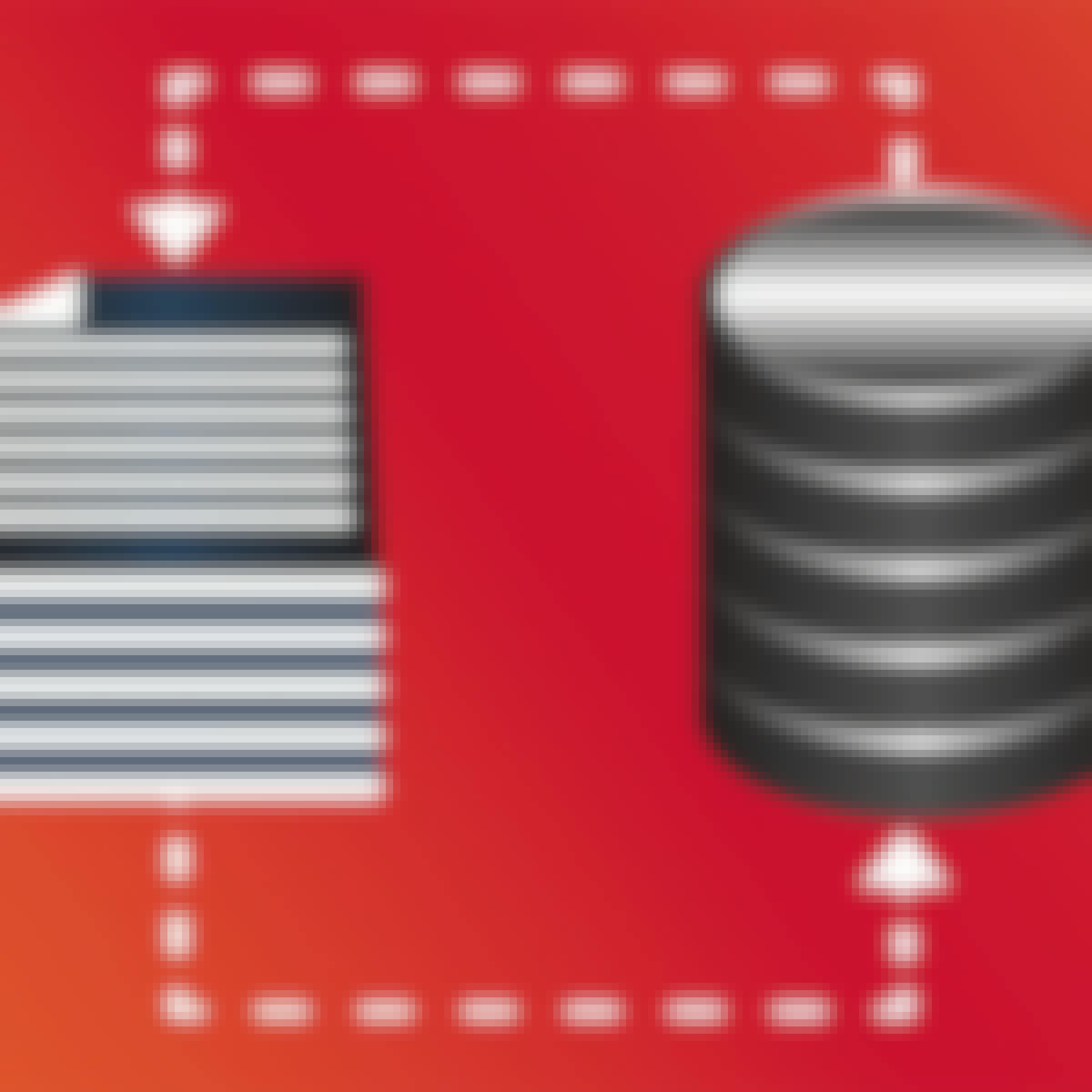Filter by
SubjectRequired
LanguageRequired
The language used throughout the course, in both instruction and assessments.
Learning ProductRequired
LevelRequired
DurationRequired
SkillsRequired
SubtitlesRequired
EducatorRequired
Explore the MySQL Course Catalog

Coursera Project Network
Skills you'll gain: Relational Databases, Database Design, Database Development, SQL, Database Management, Databases, Data Integrity
 Status: Free Trial
Status: Free TrialIllinois Tech
Skills you'll gain: Relational Databases, Database Design, Database Management, SQL, Database Development, MySQL, Transaction Processing, Stored Procedure, Java, Data Integrity, Data Structures, Performance Tuning

Coursera Project Network
Skills you'll gain: MySQL Workbench, MySQL, Database Management Systems, Database Management, Data Manipulation, Data Management, SQL, Databases, Query Languages, Data Integration
 Status: Free Trial
Status: Free TrialUniversity of Michigan
Skills you'll gain: Stored Procedure, PostgreSQL, SQL, Database Management, Database Design, Relational Databases, Query Languages, Data Manipulation, Data Import/Export, Data Integrity, Text Mining, Transaction Processing

Coursera Project Network
Skills you'll gain: MySQL Workbench, Database Design, MySQL, Relational Databases, Database Management, Databases, Database Management Systems, SQL, Data Modeling, Data Import/Export

Coursera Project Network
Skills you'll gain: SQL, Business Intelligence, Data Presentation, Business Analysis, Data Analysis, Query Languages, Databases

Duke University
Skills you'll gain: MySQL, Bash (Scripting Language), Scripting, Database Management, Relational Databases, Command-Line Interface, SQL, Databases, Data Import/Export, Database Application, Data Pipelines, Data Manipulation

Coursera Project Network
Skills you'll gain: MySQL Workbench, Data Validation, SQL, MySQL, Query Languages, Analytical Skills, Relational Databases, Scripting
 Status: Free Trial
Status: Free TrialJohns Hopkins University
Skills you'll gain: Data Manipulation, Data Cleansing, Data Wrangling, Data Integration, Data Quality, Data Transformation, Data Import/Export, Data Collection, Data Management, Web Scraping, Data Access, R Programming, Exploratory Data Analysis, MySQL, File Management, SQL, Application Programming Interface (API)

Coursera Project Network
Skills you'll gain: MySQL, MySQL Workbench, SQL, Data Cleansing, Query Languages, Data Manipulation, Database Management, Databases, Data Quality, Relational Databases, Data Entry

Duke University
Skills you'll gain: Probability, Bayesian Statistics, General Mathematics, Calculus, Graphing, Statistics, Data Science, Data Analysis, Plot (Graphics), Algebra, Geometry, Arithmetic, Derivatives

Coursera Project Network
Skills you'll gain: SQL, Query Languages, Database Management, Data Manipulation
In summary, here are 10 of our most popular mysql courses
- Creating Database Tables with SQL: Coursera Project Network
- Relational Database Implementation and Applications: Illinois Tech
- Data Manipulation and Management using MYSQL Workbench: Coursera Project Network
- Intermediate PostgreSQL: University of Michigan
- Create a Database with the Modeling Tool in MySQL Workbench: Coursera Project Network
- Data Analysis with SQL: Inform a Business Decision: Coursera Project Network
- MySQL-for-Data-Engineering: Duke University
- Complex Retrieval Queries in MySQL Workbench: Coursera Project Network
- Getting and Cleaning Data: Johns Hopkins University
- Clean Data in SQL using MySQL Workbench: Coursera Project Network










